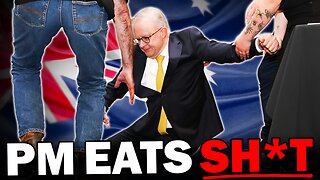Premium Only Content

embroidery vlog
Done right, YouTube descriptions can boost SEO, subscriptions, view counts, and watch time. They can also help your videos rank in YouTube.
Great YouTube marketing starts with great YouTube descriptions. There are two types of descriptions that every marketer needs to know:
A YouTube channel description is the text on your channel’s “About” page. It helps viewers understand what to expect from your brand.
A YouTube video description is the text below each of your videos. It helps viewers find your content and decide whether to watch it.
Done right, YouTube descriptions can boost SEO, subscriptions, view counts, and watch time. They can also help your videos rank in YouTube’s “suggested search” function.
20 tips for writing effective YouTube descriptions
1. Use specific keywords
Choose 1-2 keywords that accurately describe your content to maximize search traffic to your video. Include them in your video’s description and title to increase its chances of ranking in potential viewers’ search results.
The same goes for your channel description. YouTube’s algorithm places a lot of importance on the keywords in your About page. Use them wisely.
Not sure what keywords to use? Tools like Google Ads Keyword Planner and Google Trends can help you get started.
Simply type in the words that best describe what your channel or video is about and Google will suggest the closest related keywords.
2. Repeat your keywords
Repetition lets YouTube know a particular term is relevant to your video or channel. Use your keyword two to three times for best results. Anymore than three, and it may get flagged as keyword stuffing.
3. Find complementary keywords
Include related keywords in your descriptions. This provides viewers with extra information about your content. It also helps you rank for those terms in Google and YouTube searches.
4. Tell viewers what to expect
If you misrepresent your videos, viewers will stop watching them partway through. This will damage your search rankings—as well as your reputation.
Avoid clickbait titles and irrelevant keywords. They might help you rank at first, but YouTube’s search algorithm will catch on sooner or later.
5. Write like a human
Know your audience! Use language that your viewers will understand and relate to. Incorporate keywords in a natural way, not as a list.
Luckily, you don’t have to be a wordsmith to write a great YouTube description. There are lots of writing resources to help you polish your skills.
Always start with a compelling summary of your video or channel. Mention your top keywords in the first two to three sentences of your description for best results.
Why? For one, YouTube’s algorithm prioritizes the beginning of your description. Getting the first sentences right is key for your SEO.
These sentences are also the first thing viewers see when they search for content:
Finally, the beginning is the only part of your description that appears “above the fold” on the watch page. The rest of the text remains hidden unless someone chooses to “show more”:
7. Add links and metadata below the fold
If a viewer does decide to “show more,” chances are they love your stuff.
Use this opportunity to promote your brand. Add a brief channel description, your social media handles, and relevant product links.
You can also include metadata here to boost your SEO.
8. Optimize for CTR (click-through-rate)
Aim for clickable descriptions that solve real problems. Seventy percent of millennial YouTubers use videos to learn new things. Keep this in mind whenever you write copy.
9. Offer value
Always include an obvious value proposition in your descriptions. Why should someone subscribe to your channel? How will your video benefit them?
Try to answer at least one of these questions in simple terms (bonus if you can do both).
10. Include CTAs
Now you’ve got the viewer’s attention, use it!
The best calls-to-action are clear, urgent, and show an obvious benefit to the viewer. Done well, they can increase engagement, subscriptions, and more.
Add a call-to-action in both your video and channel description. Encourage viewers to like, comment, subscribe, or read more. Include links to related playlists to get them watching even more of your content.
Notice how we’ve incorporated CTAs into our channel description? Hootsuite Plans and Hootsuite Academy both get some love!
11. Save time with default descriptions
Tired of copy-pasting social media links into your YouTube video descriptions?
Try using default descriptions. This feature automatically adds key channel information to every video you upload.
12. Make your descriptions original
Unique descriptions generate better search results than templates do. Plus, they’re a lot more interesting for your subscribers!
Default descriptions are a quick way to add contact info and basic metadata to your videos. But make sure the rest of your description is fresh every time.
13. Use timestamps
Our attention spans are shorter than ever. Add timestamps to your descriptions to help viewers skip to the content they want.
Timestamps are especially useful when it comes to long videos, like multi-part tutorials or music albums:
14. Use http:// or https://
Your video description is one of the few places YouTube lets you link out. Use it! Remember to add “http://” to all URLs to make them clickable.
15. Test descriptions on multiple devices
How does your description look on your phone? On your friend’s tablet?
Seventy percent of YouTube views now come from mobile. Ensuring your descriptions are visible and compelling on all screens is a must.
Preview your videos on the watch page and in search, using as many devices and browsers as possible. Do any of your keywords get cut off?
Do the same with your channel description, and you’re set.
16. Add (a few) hashtags
Hashtags are a simple way to help viewers find your content—as long as you use them wisely.
Stick to 15 hashtags or less, or YouTube will ignore them altogether. As always, make sure they’re relevant to your video. Misleading hashtags will only frustrate viewers.
17. Copy your competitors
Metadata plays an important role in YouTube’s “Suggested Video” algorithm. Your video is most likely to appear as a suggested video for content that uses similar keywords.
As you write, browse popular videos on the same topic. Grab a couple of the top keywords from their descriptions and incorporate them into your own.
18. Add links to helpful resources
Pointing to helpful resources is a simple way to show your audience you’re thinking of them.
Do you mention any tools, blog posts, or products in your video? Link to them in your video descriptions so viewers can find them easily.
19. Credit your sources
Did you use someone else’s images, music, or footage? List them below the fold in your video description, along with links to their social channels.
Crediting your sources is the fair thing to do. But it’s also a great way to build relationships and foster future collaborations.
20. Use Youtube Analytics
Is your description attracting the views you want?
Writing YouTube descriptions is as much a science as an art. So don’t be afraid to experiment! Tweak your copy, track what happens, then revise again.
YouTube Analytics is the most effective way to do this. It can help you understand which keywords are generating the most traffic. It also lets you explore any keywords you might have missed.
-
 55:12
55:12
Esports Awards
12 hours agoBarney Banks on Esports, TikTok Fame, Dancing & More | Origins Podcast #1
5.14K1 -
 6:38
6:38
Mrgunsngear
11 hours ago $3.99 earnedTrump's ATF Removes Zero Tolerance Policy For FFLs & More 🇺🇸
9.66K18 -
 22:07
22:07
JasminLaine
12 hours agoWatch CBC Realize They Can’t Save Carney—Poilievre Calls Him a “Political Grifter”
14.9K15 -
 58:51
58:51
Motherland Casino
6 hours agoPaula x Barbara
360 -
 LIVE
LIVE
Delnorin Games
4 hours ago🔴 Live - Call of Duty
130 watching -
 13:19
13:19
Bearing
21 hours agoAustralian Prime Minister FALLS OFF STAGE Then Denies it Happened 🤣😂
11.8K43 -
 2:44:48
2:44:48
Price of Reason
13 hours agoTrump Tariff Mania CONTINUES! China vs Hollywood! Bezos Under FIRE! Sweet Baby Inc FAILS Again!
35K4 -
 2:39:40
2:39:40
TimcastIRL
10 hours agoTrump To Impose 104% TARIFF On China At Midnight In NUCLEAR BOMB On Global Trade | Timcast IRL
257K131 -
 1:54:27
1:54:27
Glenn Greenwald
12 hours agoAs Tariffs Dominate News, Trump and Netanyahu Make Increasingly Militaristic Threats; Plus: Mixed Supreme Court Ruling on Deportation Powers | SYSTEM UPDATE #435
168K189 -
 1:01:27
1:01:27
Man in America
12 hours agoMAHA Feels Betrayed by RFK Jr.—What's REALLY Happening? w/ Sayer Ji
87.5K71